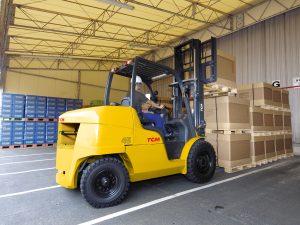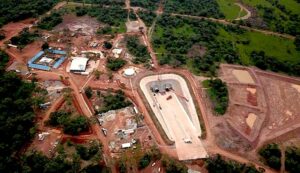Minerals Council South Africa’s COVID-19 update
The Minerals Council South Africa has held a special board meeting on the COVID-19 challenges facing the mining industry, with a view to further developing strategies and responses to minimise the virus’s impact on the industry and its employees.
Minerals Council CEO, Roger Baxter, notes that:
“The mining industry’s preparedness plans are very far advanced, based on established risk-management principles, and are currently being implemented and amended as this unprecedented situation evolves.”
There are three broad phases:
- At the outset, the aim is to prevent the spread of the disease, largely through education and hygiene as the first phase, which started in February;
- The second phase is to rapidly detect and quarantine anyone who is ill. This will of course be done in close conjunction with the NICD. This second phase was triggered when the first case was identified in South Africa;
- And, as the third phase, companies will ensure that appropriate business continuity measures are in place.
“We were particularly pleased at the presence at the meeting of Mineral Resources Minister Gwede Mantashe and his team. It is a sign of a collaborative approach that bodes well during these trying times.”
The Minister and the Minerals Council were in full agreement that the top priority in the weeks ahead is to optimise all possible preventative measures that will enable the industry to continue operating as normally as circumstances permit.
The goal is to do everything possible to prevent damage to the industry, its employees and the economy as a whole.
This involved intensifying implementation of a 10-point plan developed since the early period of the virus.
These steps include:
- Employee education and health promotion
- Health worker readiness
- Ensuring access to consumables (masks, sanitisers, testing kits) and hardware (such as temperature monitors)
- Proactive influenza vaccination, which the industry undertakes and promotes every year
- Understanding the potential impact on employees who may be immuno-compromised
- Case definition and management of suspected cases or contacts of cases
- Isolation of employees should the need arise
- Travel advice
- Reporting and communication in the industry in the event of a case
- Monitoring
In carrying out these tasks, the special board meeting recognised that South African circumstances, and mining industry circumstances in particular, require a special approach.
For example, self-isolation or self-imposed quarantine in mining communities needs to be handled differently from how it is carried out in, for example, cities of Europe and North America or the suburban areas of South Africa.
The industry is therefore examining the case for providing or supporting quarantine facilities.
There are also the issues of change-room hygiene, the more intensive use of masks, gloves and goggles, particularly in respect of underground work, and vertical and horizontal transport facilities.
The use of wards in existing mine hospitals, already with expertise in the screening and treatment of tuberculosis, including XDR TB, is being examined for COVID-19 patients.
This could extend beyond industry employees, and regional partnerships established with state health facilities in certain mining regions.
While the Minerals Council exists primarily to serve its members, this state of national disaster demands that the organisation offer its expertise and materials to all mining companies throughout South Africa.
All companies operating in the mining space are encouraged to consider and adopt the 10-point plan; to use all available materials developed by the Minerals Council, such as educational documents and standard operating procedures; and to make contact with the Minerals Council should they need further guidance.
In closing, Minerals Council CEO, Roger Baxter, notes that:
“As a key pillar of South Africa’s economy, both in its own right and as a customer and suppliers of other sectors, the industry is determined to keep its facilities in operation in order to ensure that, once the COVID-19 pandemic has passed, South Africa’s economy is able to resume, develop and grow.
“We also recognise that we need to take a holistic approach, knowing that mines are part of and embedded in their communities.”
Share this content:















Post Comment